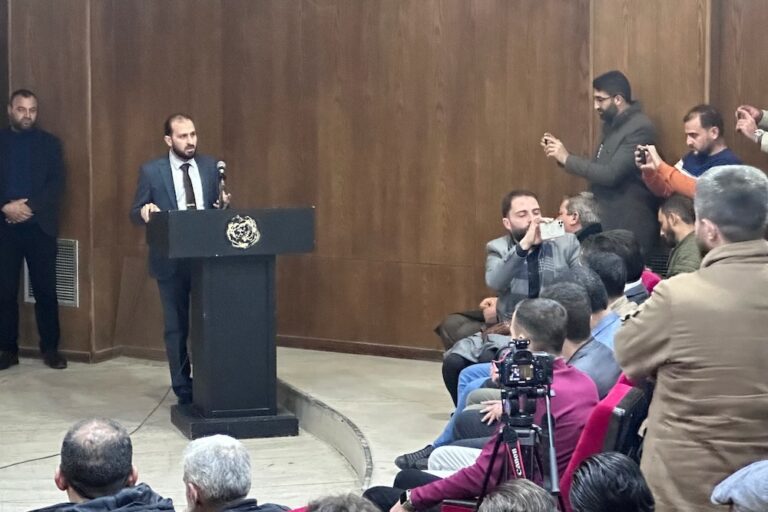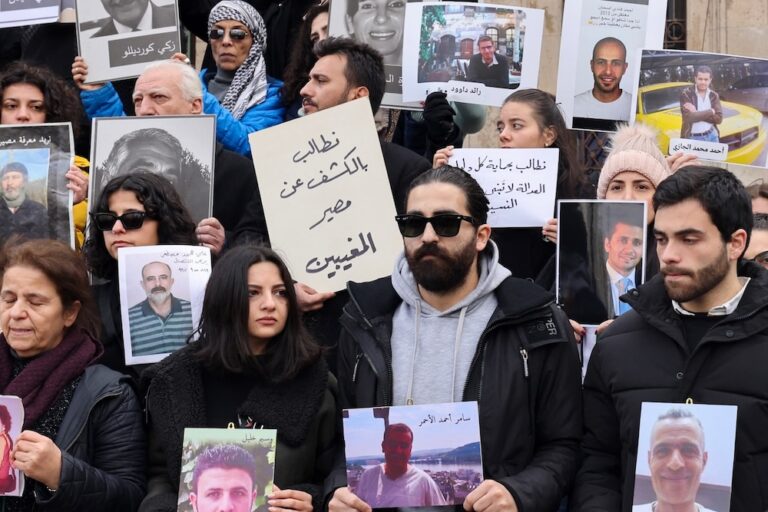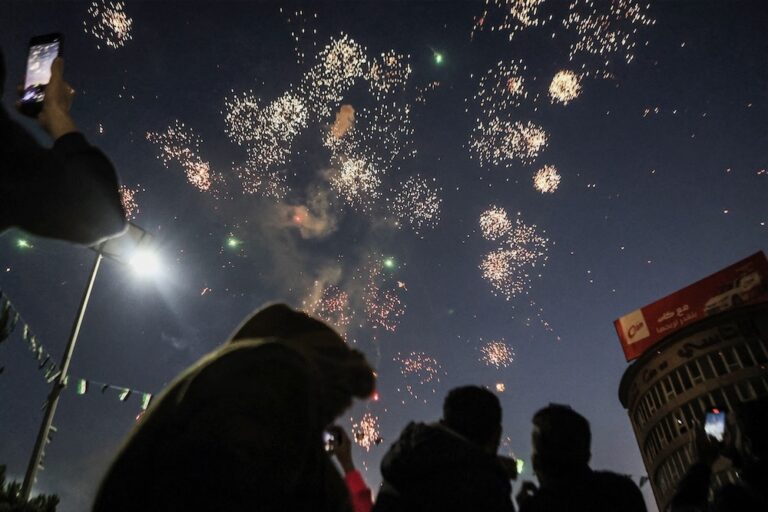“Rising for Freedom” (Talaana Aaharih) magazine has been banned in Douma, Syria and two of its journalists sentenced to prison over an article published earlier this year. The offices of the magazine and NGOs including the Violations Documentation Centre (VDC) were shut down in March 2017, and VDC was closed again this week after being attacked by a mob.
This statement was originally published on gc4hr.org on 15 August 2017.
“Rising for Freedom” (Talaana Aaharih) magazine has been banned in Douma, Syria and two of its journalists sentenced to prison over an article published earlier this year. The offices of the magazine and NGOs including the Violations Documentation Centre (VDC) were shut down in March 2017, and VDC was closed again this week after being attacked by a mob.
On 11 July 2017, after a trial in Douma, Eastern Ghouta, journalists Laila Al-Safadi and Shawkat Garziddin were sentenced in absentia to two months in prison. Journalist Osama Nassar, Assistant Editor-in-Chief and Director of its main office in Douma, who was present at the entire trial, was found not guilty.
The court accused “Rising for Freedom” magazine of defaming the image of God and hurting the feelings of Muslims in Syria, and subsequently banned the distribution of the magazine.
The case was made after Garziddin, a renowned Syrian author who shed light on every day suffering of Syrian citizens, wrote an article entitled “Papa Carry Me”, which was published on 21 February 2017. Al-Safadi is the Director of the magazine and a leading citizen journalist in Syria. The article resulted in public unrest, marshalled by ultra conservative figures, which led to an apology by the board of directors of “Rising for Freedom” on 09 March 2017. The apology came while the staff of the magazine were receiving death threats.
“Rising for Freedom” magazine adopted a non-violent political approach in addressing Syrian citizens’ concerns and promoted respect of human rights values and gender equality for more than five years. The offices of the magazine in Eastern Ghouta as well as other organisations were targeted by the security apparatus of the Army of Islam, an armed faction that has de facto authority in Douma, and forced to close on 08 March 2017.
Among the NGOs that were shut down in the same building by the Army of Islam was the VDC, which was forced to close on 09 March 2017. On 13 August 2017, a mob of around 100 supporters of the Islamic Army attacked VDC’s offices in Douma, destroying the office and taking equipment and papers, while assaulting the staff. VDC reports that the security forces that are part of Army of Islam did nothing to stop the mob from the attack, and then closed the office allegedly to protect the staff. The reason for the attack was unclear but may be connected to VDC’s call for women to be free to work outside the home.
The court that upheld the sentence in July 2017 against “Rising for Freedom” magazine and its staff is controlled solely by the Army of Islam after the redeployment of other parties away from Eastern Ghouta. The court is formed by two personnel, a judge and an assistant. Such courts have no clear Court Procedure Regulations and no written penal code. In the written court sentence, the judge brought an article from Kuwaiti Publications Law and used it to justify his sentence of banning the magazine. The judge failed to adhere to the minimum standards of the right to a fair trial and neither he nor his assistant recognised the right to a fair trial guaranteed by International Humanitarian Law, the ICCPR, and the UN Convention Against Torture (the right of protection, non-biased trial, right to have a lawyer).
The Army of Islam as a de facto authority had many disputes with “Rising for Freedom” staff since its foundations. There have been many concerns about the Islamic Army’s failure to protect citizens and even possible involvement in human rights violations, raised after the forced disappearance of prominent human rights lawyer Razan Zaitouneh, one of the founders of “Rising For Freedom” who was an editor of the magazine as well as head of VDC at the time of her kidnapping together with three other human rights defenders, her husband Wa’el Hamada, Samira Al-Khalil, and Nazim Hammadi in December 2013. This dispute jeopardised the legitimacy of the court and its sentence.
The Gulf Centre for Human Rights (GCHR) expresses serious concern at human rights violations targeting journalists and freedom of the press in Eastern Ghouta. GCHR is also concerned that journalists Laila Al-Safadi, Shawkat Garziddin and Osama Nassar are victims of hate speech and violence that would render them unable to work as journalists. GCHR expresses further concern at the on-going targeting of human rights defenders, journalists and citizen journalists in Syria solely as a direct result of their peaceful and legitimate human rights activities.
GCHR urges parties to the conflict in Syria, in particular the Army of Islam as a de facto authority in Eastern Ghouta, to:
- Immediately and unconditionally lift the ban on “Rising for Freedom” magazine;
- Guarantee the safety of “Rising for Freedom” magazine staff while carrying out their work;
- Provide acceptable standards to guarantee the right to fair trial when the “Rising for Freedom” magazine staff approach the appeal court in Douma, Eastern Ghouta;
- Ensure that the Violations Documentation Centre is allowed to operate freely and is provided with protection when attacked; and
- Guarantee that all human rights defenders and citizen journalists in Douma are able to carry out their legitimate human rights activities without fear of reprisals and free of all restrictions including judicial harassment.


